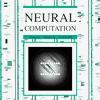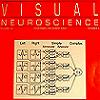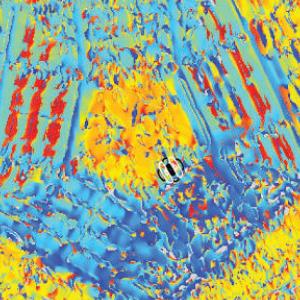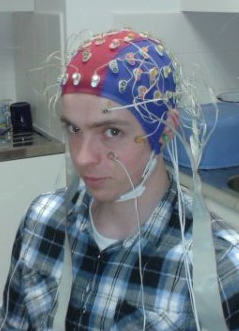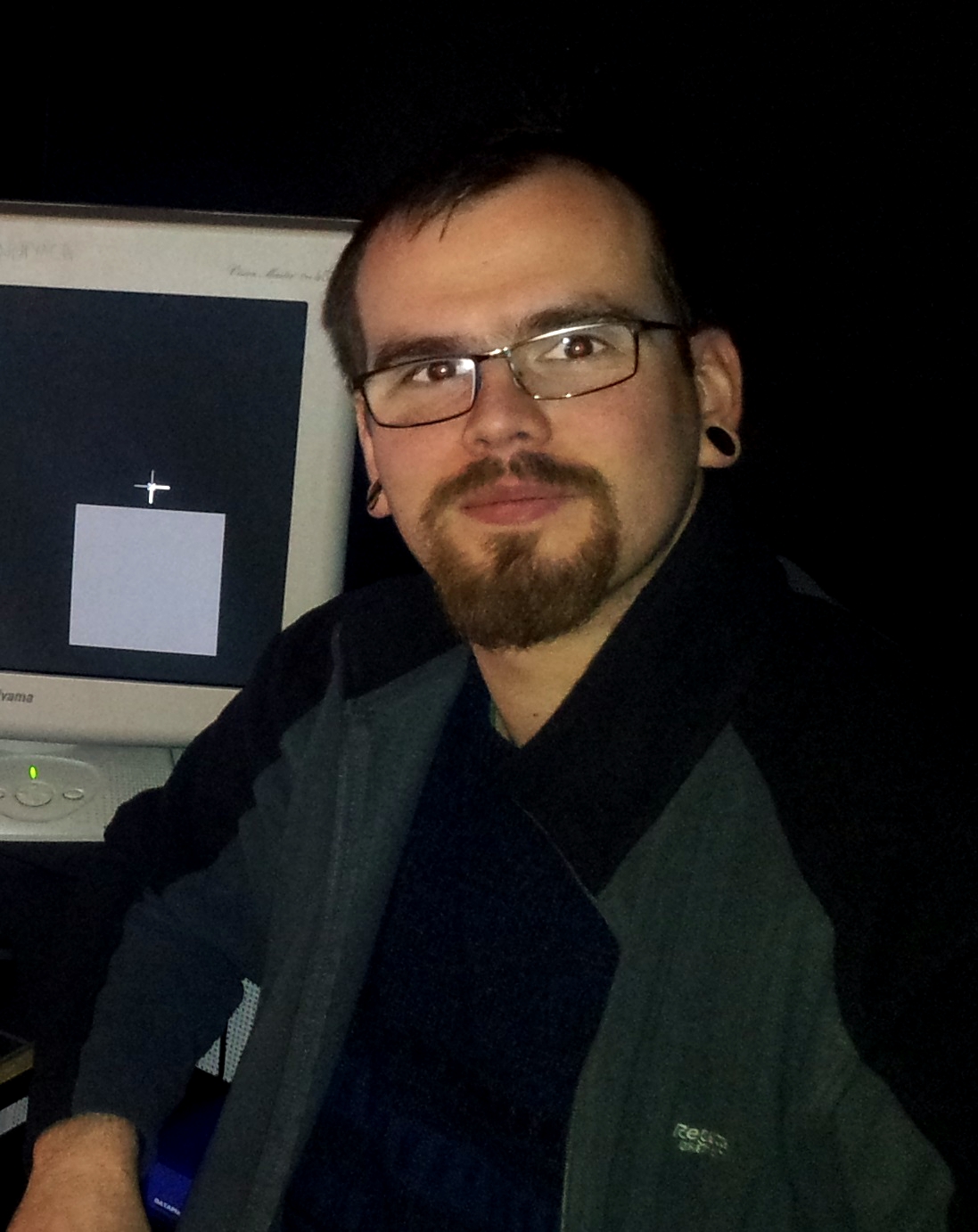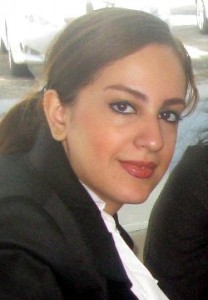Former
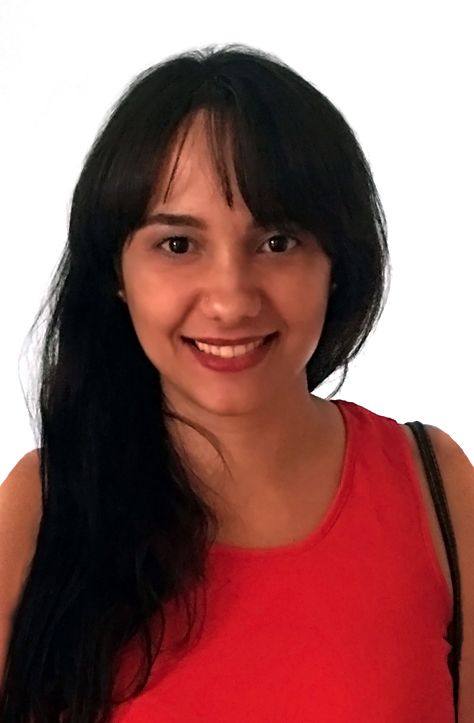
Maydel Fernandez-Alonso: Metric depth perception with lightfield displays
2016 – 2019
Maydel is an Early Stage Researcher on the European Training Network on Full-Parallax Imaging. Maydel has a degree in Psychology from the University of Havana, Cuba, with a dissertation on developmental dyscalculia. She has previously worked on depth perception in virtual reality with Prof David Field at Cornell University on a Latin America Studies Program Scholarship.
Publications with Fernandez-Alonso M
Kaspiris-Rousellis C, Fernandez-Alonso M, Read JCA (2019)Extending the Human Foveal Spatial Contrast Sensitivity Function to High Luminance Range
Proceedings of the European Light Field Imaging Conference (European Association for Signal Processing)
Fernandez-Alonso M, Kaspiris-Rousellis C, Innes W, Read JCA (2019)
Assessment of Psychophysical Methods for Measuring the Critical Flicker Fusion Frequency in Yes/No Tasks
Proceedings of the European Light Field Imaging Conference (European Association for Signal Processing)
Fernandez-Alonso M, Innes W, Read JCA (2023)
Peripheral Flicker Fusion at High Luminance: Beyond the Ferry–Porter Law
Vision 7(1), 26 1-16
Finch A, Fernandez-Alonso M, Kirby A, Read JCA, Love G (2024)
Focusing on mixed narrow band stimuli: Implications for mechanisms of accommodation and displays
Journal of Vision 24 https://doi.org/10.1167/jov.24.9.14
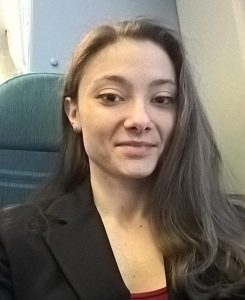
Laura Palmieri: How early visual cortex encodes the binocular statistics of the natural world
2017 – 2021
Laura is funded by a 4-year PhD studentship from the Wellcome Trust in the UK and the National Institutes of Health in the US. She is jointly supervised by me at Newcastle and by Bruce Cumming at the NIH. She previously worked with Maria Michela Del Viva at the University of Florence.
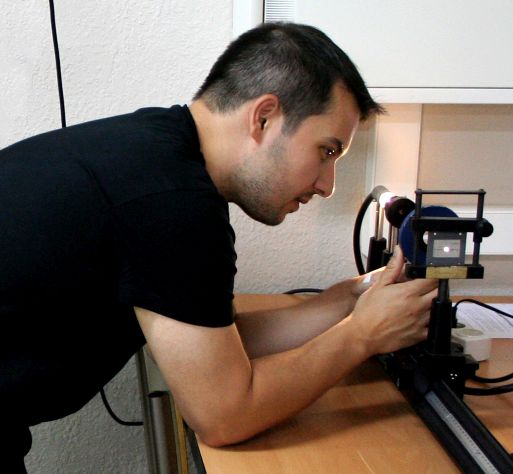
Christos Kaspiris-Rousellis: Visibility and acceptance of continuous parallax distortions
2016 – 2020
Chris was an Early Stage Researcher on the European Training Network on Full-Parallax Imaging. Chris has a diploma in applied mathematics and physical sciences from the National Technical University of Athens, Greece, and a Master’s degree in computational mechanics from the same institution. He has worked on human perception and kinematics in three dimensional space with Dr Konstantinos Siettos and Dr Nikolaos Smyrnis at the Laboratory of Sensorimotor Control of the Mental Health Research Institute in Athens.
Publications with Kaspiris-Rousellis C
Kaspiris-Rousellis C, Fernandez-Alonso M, Read JCA (2019)Extending the Human Foveal Spatial Contrast Sensitivity Function to High Luminance Range
Proceedings of the European Light Field Imaging Conference (European Association for Signal Processing)
Fernandez-Alonso M, Kaspiris-Rousellis C, Innes W, Read JCA (2019)
Assessment of Psychophysical Methods for Measuring the Critical Flicker Fusion Frequency in Yes/No Tasks
Proceedings of the European Light Field Imaging Conference (European Association for Signal Processing)
Read JCA, Kaspiris-Rousellis C, Wood TS, Wu B, Vlaskamp BNS, Schor CM (2022)
Seeing the future: Predictive control in neural models of ocular accommodation
Journal of Vision 22:9 https://doi.org/10.1167/jov.22.9.4
Gibaldi A, Liu Y, Kaspiris-Rousellis C, Mahadevan SM, Read JCA. Vlaskamp BNS, Maus GW (2025)
Eye posture and screen alignment with simulated see-through head-mounted displays
Journal of Vision 25 (9) https://doi.org/10.1167/jov.25.1.9
PhD thesis (Kaspiris-Rousellis)
Sid Henriksen: Neurophysiology of stereo depth perception
2013 – 2017
Sid was jointly supervised by me at Newcastle, and by Bruce Cumming at the US National Institutes of Health, under the joint scheme funded by the Wellcome Trust and the NIH. Sid has a first in Psychology from Aberdeen University and an MRes in neuroscience from Newcastle, with distinction and the prize for top international student. He went on to a career as a data scientist.
Publications with Henriksen S
Henriksen S, Cumming BG, Read JCA (2016)A single mechanism can account for human perception of depth in mixed correlation random dot stereograms
PLOS Computational Biology 12(5) e1004906:1-21
Henriksen S, Read JCA (2016)
Visual Perception: A Novel Difference Channel in Binocular Vision
Current Biology 26(12) R500–R503
Henriksen S, Read JCA, Cumming BG (2016)
Neurons in Striate Cortex Signal Disparity in Half-Matched Random-Dot Stereograms
Journal of Neuroscience 36(34) 8967– 8976
Nityananda V, Tarawneh G, Henriksen S, Umeton D, Simmons A, Read JCA (2018)
A Novel Form of Stereo Vision in the Praying Mantis
Current Biology 28 (4) 588-593.E4
Zoltán Derzsi: Measuring the spatio-temporal resolution of stereopsis in humans using EEG
2012 – 2016
Zoltán was on Newcastle’s 4-year Wellcome Trust doctoral training scheme, and did one of his three short MRes projects in my lab before deciding to do his PhD with me. He worked on EEG measures of binocular vision. He went on to a postdoctoral position with Robert Volcic at NYU’s campus in Abu Dhabi.
Lisa Jones (née Hindmarsh): Camouflage in the praying mantis
2012 – 2016
Lisa has a First in Zoology from Newcastle. She won the 2012 W. H. Young Prize for best biology research project for her work with Geraldine Wright on the effect of insecticides on GABA-ergic transmission in honeybees. Lisa did a 4-year MRes+PhD, funded by the BBSRC. She was supervised by me, Candy Rowe and Claire Rind. She went on to qualify as a biology teacher.
Publications with Jones L
Nityananda V, Tarawneh G, Jones L, Busby N, Herbert W, Davies R, Read JCA (2015)The contrast sensitivity function of the praying mantis Sphodromantis lineola
Journal of Comparative Physiology A 201(8) 741-50
Tarawneh G, Jones L, Nityananda V, Rosner R, Rind C, Read JCA (2018)
Apparent Motion Perception in the Praying Mantis: Psychophysics and Modelling
Vision 2(3) 32; doi: 10.3390/vision2030032
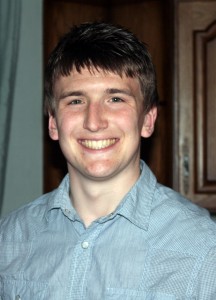
Paul Hands: Spatial temporal and human factors affecting image quality and experience of 3D in television, cinema and gaming
2012 – 2016
Paul graduated in Mathematics from Newcastle with one of the top Firsts in his year. He did a 4-year CASE MRes+PhD studentship sponsored by EPSRC and BSkyB. After his PhD, Paul went on to work as a finance software developer for
Publications with Hands P
Hands P, Read JCA (2013)Perceptual compensation mechanisms when viewing stereoscopic 3D from an oblique angle
International Conference on 3D Imaging (IC3D), 2013 1 - 5
Hands P, Khushu A, Read JCA (2015)
Interaction between size and disparity cues in distance judgements
3D Imaging (IC3D), 2014 International Conference on 1-5
Hands P, Smulders TV, Read JCA (2015)
Stereoscopic 3D content appears relatively veridical when viewed from an oblique angle
Journal of Vision 15(5):6 1-21
Hands P, Read JCA (2017)
True stereoscopic 3D cannot be simulated by shifting 2D content off the screen plane
Displays 48 35-40
Partow Yazdani: Visual psychophysical tests for epilepsy
2012 – 2015
Partow did her B.Sc in Biomedical Engineering at the Science and Research Branch of Islamic Azad University, Tehran, Iran. Her undergraduate dissertation was on “Signature Verification by Artificial Neural Networks”. She then did an M.Sc. in Bioinformatics and Systems Biology here at Newcastle, where she worked with Marcus Kaiser and obtained a distinction. Her PhD was funded by the charity Epilepsy Action and was jointly supervised by me, Andrew Trevelyan and Roger Whittaker. She went on to a career in the pharmaceutical industry.
Publications with Yazdani P
Read JCA, Georgiou R, Brash C, Yazdani P, Whittaker R, Trevelyan A, Serrano-Pedraza I (2015)Moderate acute alcohol intoxication has minimal effect on surround suppression measured with a motion direction discrimination task
Journal of Vision 15(1):5 1-14
Yazdani P, Serrano-Pedraza I, Whittaker R, Trevelyan A, Read JCA (2015)
Two common psychophysical measures of surround suppression reflect independent neuronal mechanisms
Journal of Vision 15 (21) 1-14
Yazdani P, Read JCA, Whittaker RG, Trevelyan AJ (2017)
Assessment of epilepsy using noninvasive visual psychophysics tests of surround suppression
Physiological Reports 5(5) pii: e13079. doi: 10.14814/phy2.13079.
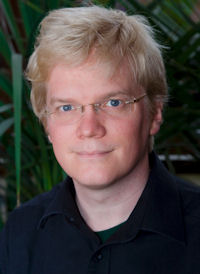
Graeme Phillipson: Investigating the roles of vertical disparity and lateral-occipital cortex in stereopsis
PhD student 2006 – 2011
Graeme was a student from the Neuroinformatics Doctoral Training Centre at Edinburgh University. He did both his MSc project (with distinction) and his PhD work in my lab. He studied how vertical disparity affects both the solution of the correspondence problem, and how this is subsequently used in perception. For his MSc project, he looked at illusions related to the induced effect, in which vertical magnification varied across the visual scene. His work suggested that vertical disparity is measured on a much finer scale than previously thought. For his PhD work, he examined how the brain handles changes in binocular geometry which arise as you view objects at different distances, discovering that stereo correspondence is optimised for long viewing distances and that, in consequence, performance on a stereo task can actually be improved by adding in vertical disparity. After leaving my lab, he worked with Bas Rokers at Madison, Wisconsin. His website is web.me.com/graeme.phillipson. Graeme had his PhD viva in December 2012 and passed subject to minor corrections. He went on to work as a software engineer.
Publications with Phillipson GP
Read JCA, Phillipson GP, Glennerster A (2009)Latitude and longitude vertical disparities
Journal of Vision 9(13):11 1-37
Serrano-Pedraza I, Phillipson GP, Read JCA (2010)
A specialization for vertical disparity discontinuities
Journal of Vision 10(3):2 1-25
Read JCA, Phillipson GP, Serrano-Pedraza I, Milner AD, Parker AJ (2010)
Stereoscopic vision in the absence of the lateral occipital cortex
PLoS ONE 5(9) e12608
Phillipson GP, Read JCA (2010)
Stereo correspondence is optimized for large viewing distances
European Journal of Neuroscience doi:10.1111/j. 1460-9568.2010.07454.x.
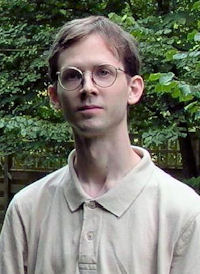
Fredrik Allenmark: The spatial resolutions of stereo and motion perception and their neural basis
PhD student 2008 – 2011
Fredrik has an M.Sc. in Engineering Physics from Chalmers University of Technology, Gothenburg, Sweden. For his PhD, he studied how well correlation-based models of human stereo correspondence account for human depth perception, looking in particular at the detection of sine-wave and square-wave disparity gratings. He demonstrated that the current models of this process could not account for our perception of square-wave disparity gratings, and produced a new version which fixed this problem. Fredrik was awarded his PhD in Jan 2012, then did a one-year postdoc with me, and went on to a postdoc with Florian Waszak at the University Paris Descartes.
Publications with Allenmark PF
Allenmark PF, Read JCA (2010)Detectability of sine- versus square-wave disparity gratings: a challenge for current models of depth perception
Journal of Vision 10(8):17 1-16
Allenmark PF, Read JCA (2011)
Spatial stereoresolution for depth corrugations may be set in primary visual cortex
PLoS Computational Biology 7(8) e1002142
Allenmark PF, Read JCA (2012)
Conjunctions between motion and disparity are encoded with the same spatial resolution as disparity alone
Journal of Neuroscience 32(41) 14331–14343
Read JCA, Allenmark PF (2013)
Visual Perception: One World from Two Eyes
Current Biology 23(11) R483-R486
